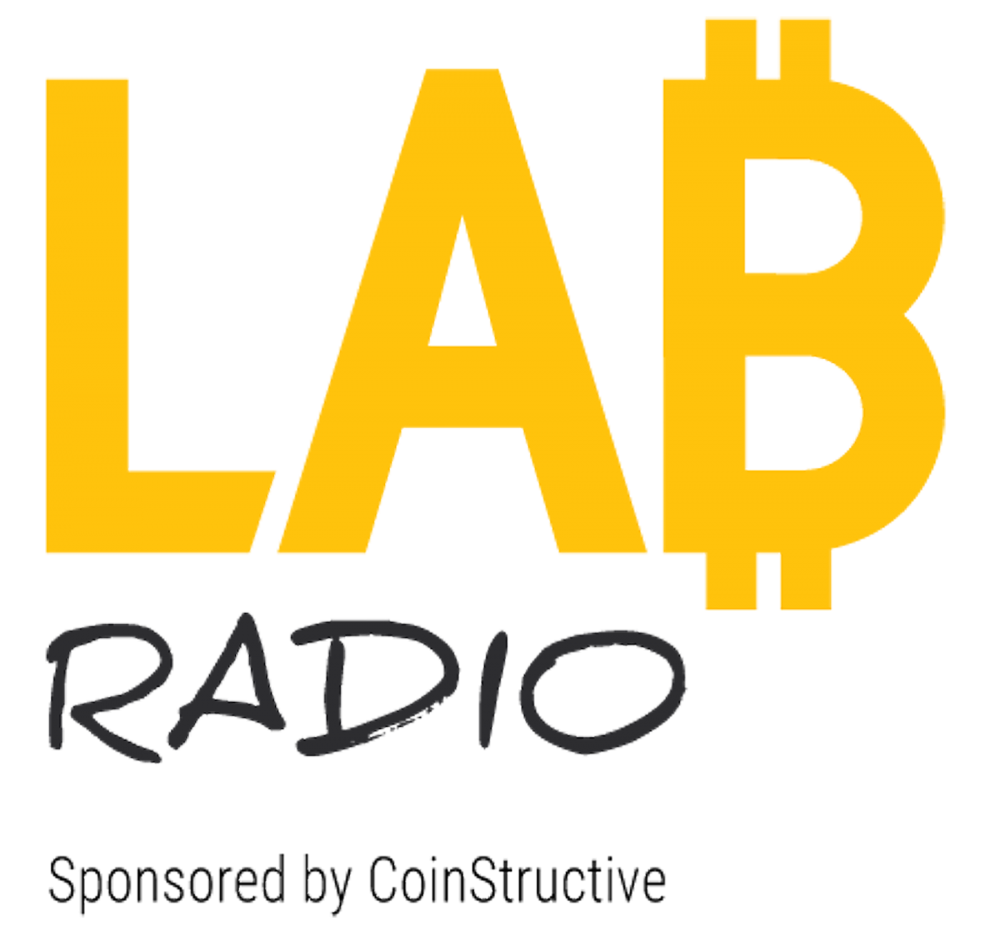Daniel Popa, CEO of Anchor
Welcome to episode 60 of LAB Radio. We had a chat with Daniel Popa, CEO of Anchor. Anchor is a "stable currency designed to preserve and enhance the value of your holdings. Anchor is pegged to the value of the global economy, protected by a safety net comprised of six pillars."
Daniel elaborates on his LinkedIn:
"Anchor is addressing one of the biggest issues in the global economy – how to preserve monetary value over time, stabilize the value of any given currency, lower its volatility and prevent devaluation.
Anchor aims to solve the problem of transparency, liquidity, guarantee and trust on a global scale and thus tackle these burning issues directly, with the introduction of stability, facilitated by a decentralized true stable token and backed by the purchase of sovereign debt as the backing for the two-token system.
Additionally, Anchor goes a step further than other cryptos, and proposes a solution for the systemic issue of instability in the financial markets in general. We have devised an innovative and universal monetary value measurement Standard, in the form of a Proprietary mathematical algorithm – the Monetary Measurement Unit (MMU).
The MMU is a true representation of the value of the global economy and an index based on the real GDP of more than 190 countries of the word.
In light of this, Anchor’s value will be pegged to the MMU directly, providing a stable and dependable unit to store and preserve monetary value over many decades, as opposed to crypto and fiat currencies that are more susceptible to fluctuation as a result of market forces and the volatility of global and local economic landscapes."
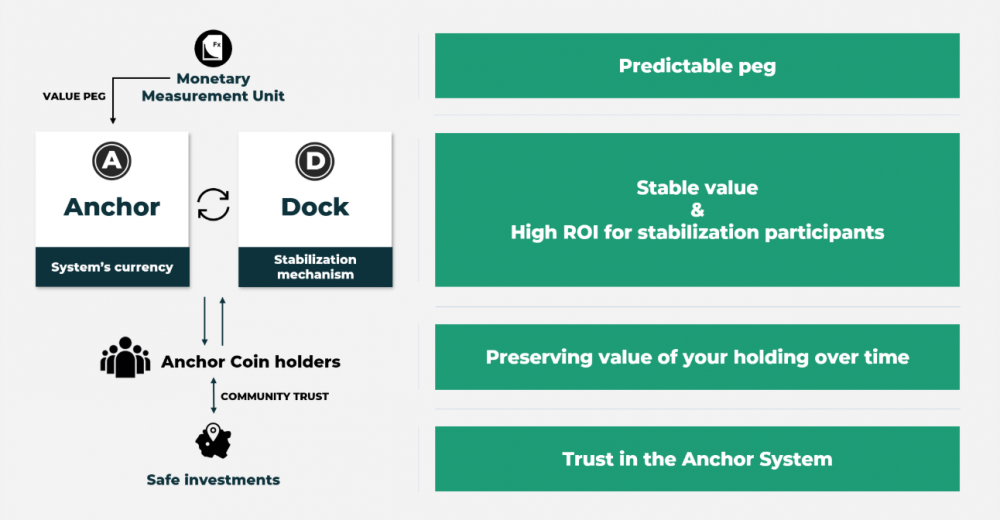
How Anchor's System Works
What you will learn during this episode:
- Who is Daniel Popa and his background
- What is Anchor and what problem they're solving
- Why we need another stable coin
- What is the MMU index and why its proprietary
- Why Anchor uses a two-token system
- What is the ultimate goal of the project and tokens? (Store of value, Investment vehicle)
- What resources he would recommend for people to learn more
For show notes and more please visit: LAB Radio
Welcome to episode 59 with Hailey Lennon, the Head of Legal and Regulatory Affairs for bitFlyer US. If you're not familiar with bitFlyer, don't worry, it's only the biggest cryptocurrency exchange in Japan. They have been in business since 2014 and are expanding throughout the US and European markets.
Hailey and I finally get to sit down and talk about what her new role at bitFlyer entails. When Hailey and I first met in 2015/2016 she was working with Silvergate Bank to help launch their banking platform for legitimate cryptocurrency companies. We get to find out how she ended up at bitFlyer after starting out with one of the biggest and most crypto friendly bank in the US. We also talk about the path that led her to where she is today.
Hailey and I both agree, more collaboration around compliance, regulation and oversight, even with competitors, is needed to advance the crypto and blockchain industry. There needs to be more open discussions and working groups stepping up to provide guidance to Regulatory Agencies while leading by example, not through lobbying. This is why bitFlyer and Hailey are leading the charge for a new organization called the Virtual Commodities Association, to which its founding members consist of Bitstamp, Bittrex and Gemini.
Things you will learn during this episode:
We dive into the differences between San Diego and San Francisco from a crypto perspective.
Where Hailey thinks crypto US and global regulation may be headed.
What are the goals for bitFlyer in 2019?
Creating Self-Regulating Organizations(SRO), industry standards and best practices for virtual commodities.
If she wasn't in the crypto and blockchain space, what Hailey thinks she would be doing instead.
If she had a magic wand, what would Hailey change about the industry.
If there is any cultural crossover or influence, since bitFlyer is originally from Japan? What's the environment at bitFlyer like?
Further Reading and Resources
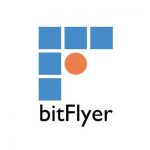
bitFlyer | Website (US) | Facebook | LinkedIn | Twitter USA | Twitter Japan | Twitter Europe

Hailey Lennon Head of Legal & Regulatory Affairs| Facebook | LinkedIn | Twitter

Vault Logic is a all-in-one kiosk containing a traditional ATM and multi Cryptocurrency BTM, while also featuring Cash as a Service (CaaS). Some of the features include:
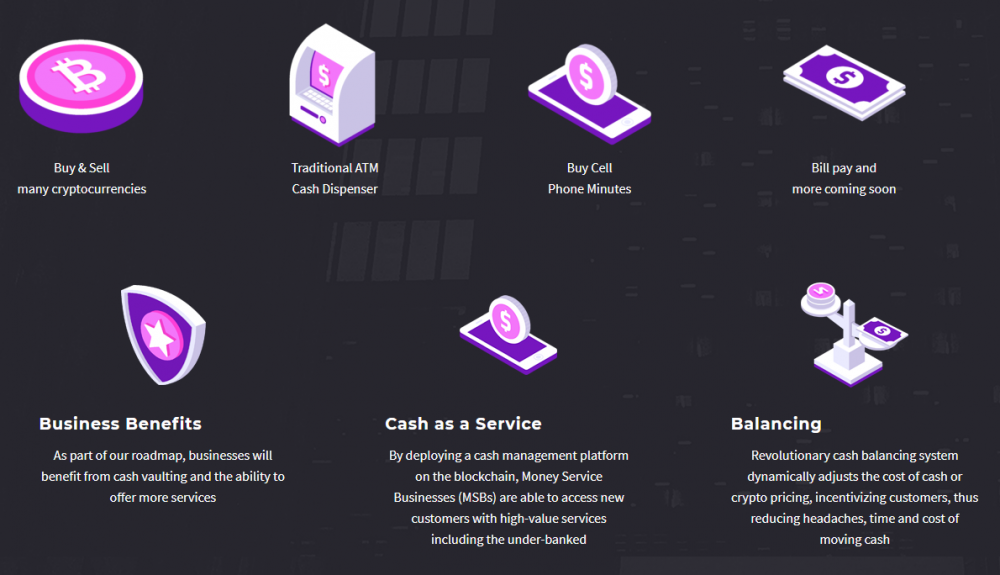
This is not just a "ATM" only dispensing Cryptocurrency (of which it offers many beyond Bitcoin). It can handle buying cell phone minutes and will eventually allow users to pay bills through the kiosk.
There is also a feature where the machine will pay users a premium by offering higher than spot market prices to help clear the machine of cash.
There are also display ads on the machine which has a revenue share built in with the venue hosting the machines.
Here are the technical specifications of the machine:
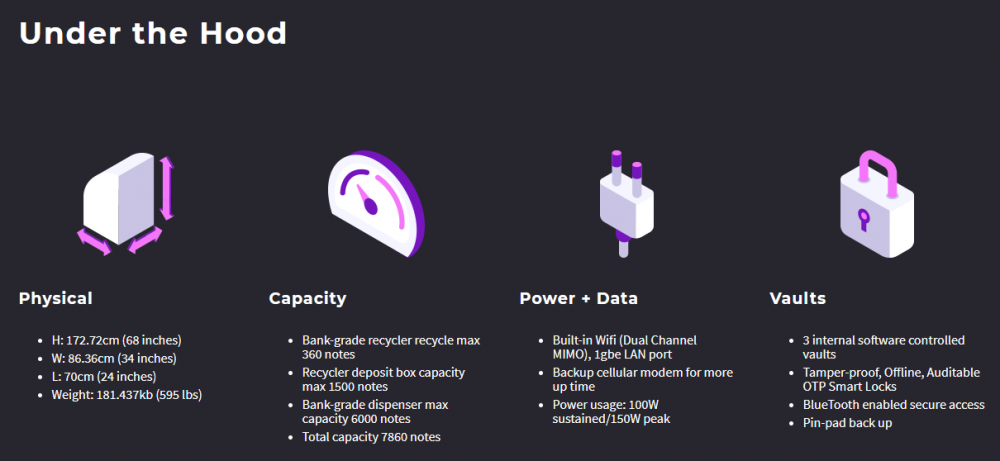
We covered topics including how to pick a company to work with in the Blockchain space, what's the scene like and of course all about the Vault Logic Kiosk itself.
We also covered some bio-hacking and practices Cassi engages in to stay balanced in her busy work world.
The Reserve Protocol
This story about a stablecoin project called the Reserve Protocol is far different from most stablecoin projects you've heard of. Reserve's approach is to solve one of humanity's greatest challenges by creating an ethical and stable currency without government control. Combatting corruption of governments or central banks while protecting against hyperinflation are just a few of the driving forces behind this project.
I really enjoyed speaking with Nevin Freeman, Cofounder and CEO of the Reserve Protocol. Specifically, what really drew me to this project were the positive things that I noticed about the brand. I don't remember the last time I saw a blockchain or crypto company with a whole webpage dedicate to ethics. Nevin and I get to connect over the inspiration and motivation to take on a project of this magnitude. We take a bit of a deep dive into his background growing up and his desire to solve problems for humans across the globe.
Reserve Ethics
Today there is a severe lack of transparency and trust in many of the world’s monetary systems. Hundreds of millions of people live in countries without stable currencies, resulting in dramatic losses of wealth. This inability to effectively protect savings prevents people from planning for the future and bettering themselves. The world needs a stable, global, digital currency that gives people autonomy and control of their money.
This is not your typical cryptocurrency company or ICO. This team has a huge vision and the resume to back it up. They have more investors listed on their website than they have employees. This is not a measure of future success, but what it shows is people love solving problems and money is one of them. I hope a stablecoin solution emerges soon. Enjoy the show.
Some of the things you'll learn in this episode:
When will the Reserve Protocol launch?
Who is their target market and audience?
What the is plan to penetrate these markets?
Would the Reserve Protocol been able to help with issues like the "US Government Shutdown"?
How does Quantitative Easing devalue your savings?
Can the use of a stablecoin protocol like Reserve really incentivize better ethical engagements?
Further Reading and Resources
LinkedIn - Nevin Freeman
Twitter - Nevin Freeman
Facebook - Nevin Freeman
Website - Reserve.org
Telegram - Reserve Protocol
Twitter - Reserve Protocol
Facebook - Reserve Protocol
I had the pleasure of meeting Geovane and his colleague in a obscure little corner of the Consumer Electronics Show (CES) in the Eureka Park section. I was excited to find a really cool little yet powerful computer that is an alternative to Raspberry Pi (as well as befriend two awesomely Brazilian technologists). This unit is proudly made in Brazil and rivals their English counter part (the Pi).
On this episode of LAB Radio we caught up with Geovane Fedrecheski a computer science engineer, Ph.D candidate and team member of a Raspberry Pi alternative called Labrador.
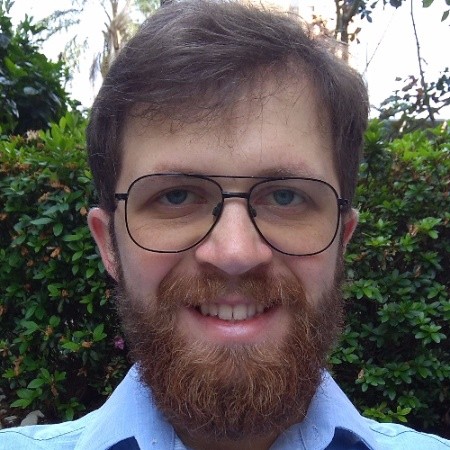
Geovane Fedrecheski
"In my career, I have helped LG Electronics to deliver great mobile phones for all Latin America and collaborated in the creation of a free MOOC that teaches IoT for non-technical people. I have taught programming for both children and adults, co-founded and dropped out of a startup, and did theater classes for two years to enhance my communication skills. I currently do Research and Software Engineering at University of São Paulo, where I also happen to be a PhD student. I think computers shall help and empower people. Thus, as a scientist, my goal is to use technology to enhance peoples' lives."
Geovane is a Ph.D. student where he does research and development of a Internet of Thing (IoT) framework called the SwarmOS. This entails investigating how to best manage security authorizations in swarms of IoT devices. Geovane developed an access control and Blockchain solution as well as a network discovery algorithm. His work was published in various scientific journals and conferences.
The Labrador (Raspberry Pi alternative) is a fairly robust and powerful computer. One of the benefits Geovane mentioned when we were talking at CES was the potential for outdoor applications (like weather elements). Believe it or not, the Raspberry Pi is not ideal for outdoor locations which makes it a pretty poor choice for outdoor IoT applications (which are greatly needed for smart cities as an example).
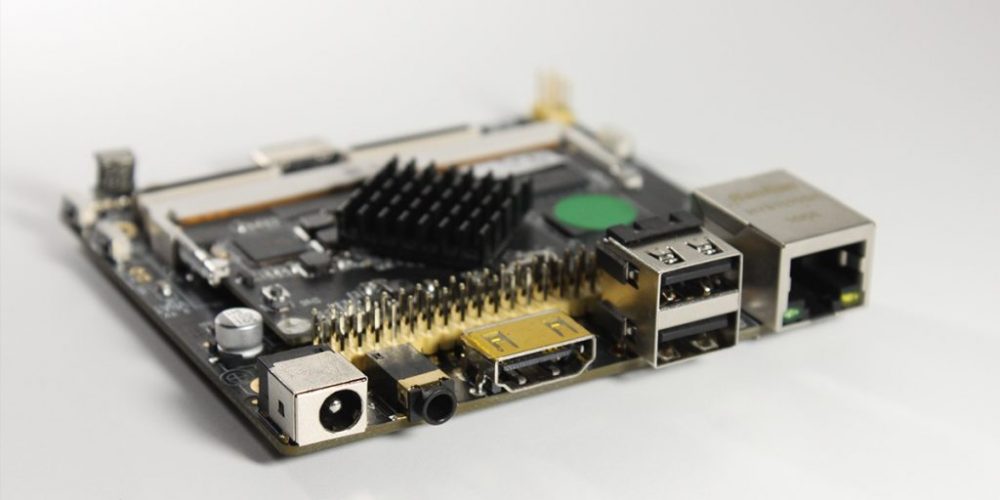
As stated in their collateral:
"The Caninos Loucos Labrador board is a Brazilian Single Board Computer, with open Hardware and Software, that can be used to create Internet of Things applications.It is composed by two boards: the Labrador Core Board, which has all features of a modern computer, and the Labrador Base Board, which expands its communication options by providing a large variety of connectors.The modularity of the Caninos Loucos Labrador board allows for greater flexibility in hardware interface prototyping. Other Base Board models can be used, with specific functionalities required by custom applications.This board set features ESD (electrostatic discharge) protection, is compact, resistant, and can be used in a range of applications, from personal projects to commercial applications."
Here are more on the specifications of the board:

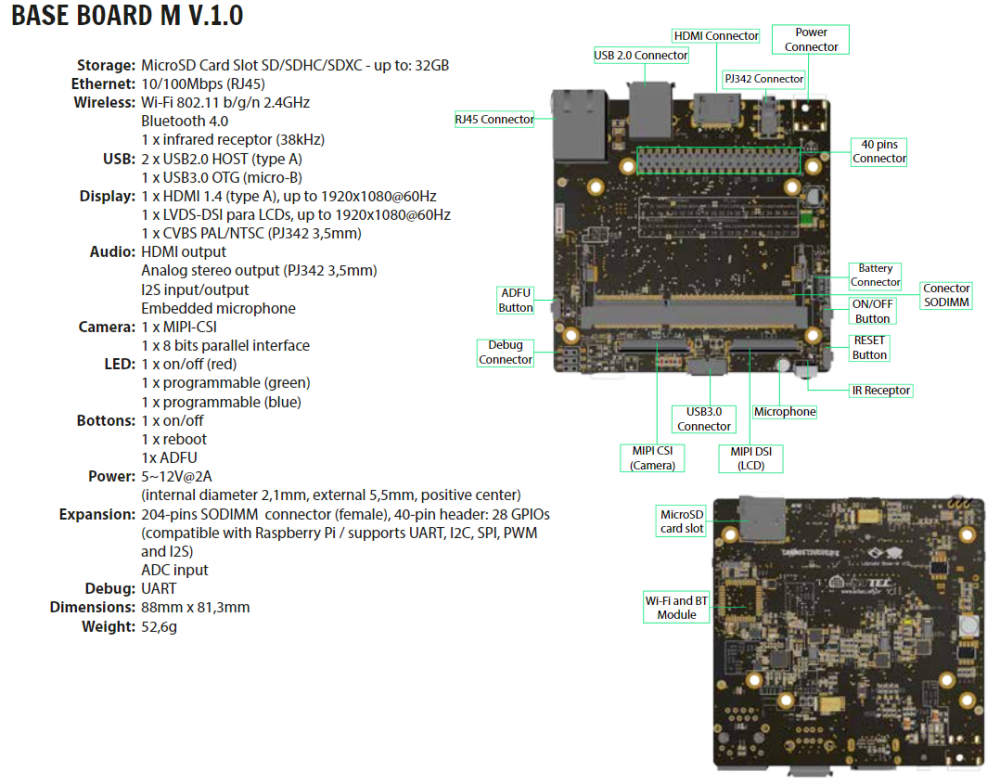
After listening to this episode you will learn:
- About Geovane's background and how he got into computer science
- What LSI TEC is
- What type of research and work he does in Internet of Things (IoT)
- What the Caninos Loucos single board computer is (Raspberry Pi alternative)
- Why and how did this project come about
- What its specs are and what can be done with it
- A few Blockchain use cases for the board
- Geovane's thoughts on CES 2019 and technology that got him excited
- What excites him the most about the state of technology (and the Blockchain)
I recently ran into Tatiana Moroz, of Crypto Media Hub while we were in Las Vegas together for the Unconfiscatable conference. Tatiana is one of the coolest people in the Bitcoin ecosystem. She throws great dinner parties with awesome guests. If she's not the one throwing the party, she always knows where the best one is. Oh, did I mention she can sing and play guitar. On top of all this, she's a great person and a pleasure to speak with too.
On this occasion, we got to chat about maximalism and why she decided to attend the Unconfiscatable conference. She stresses the importance of knowing and "hodling" your friends close during crypto winter. We dive into the intersection her career in music and blockchain technology. Tatiana tells her thoughts about the current state of cryptocurrency adoption. Shout out to Marshall Hayner from Metalpay. Tatiana tells us what she's been up to and what she's got cooking for 2019.
About Tatiana Moroz
Tatiana Moroz is the founder and CEO of Crypto Media Hub, a PR, advertising, and marketing agency for the Blockchain industry. She is the advisor on several crypto projects.
Tatiana is a pioneer female singer-songwriter in the Bitcoin and activist community and is the creator of Tatiana Coin, the world’s first ever artist cryptocurrency. Her music brings a fresh take on that folk style of the revolutionary 60’s and 70’s, and is an original blend of alt country, pop, rock, and blues.
As a graduate of Berklee College of Music, Tatiana has had an extensive music career managing and promoting top New York recording studios and touring the globe singing and speaking alongside Ron Paul, Gary Johnson, Jill Stein, and Judge Napolitano at dozens of events including Inside Bitcoins, SXSW, Bitcoin South, NASDAQ, many blockchain events worldwide, aand several Libertarian National Conventions. With three independently produced and released LPs, EPs and several singles, Tatiana’s third EP "Keep the Faith" released in 2017 having been completely funded with cryptocurrency.
As a prominent figure in the Bitcoin community, Tatiana has appeared on NASDAQ, Market Watch, Yahoo Finance, Fox’s Stossel, Reason Magazine, the NY Times, Billboard, RT America, Infowars, International Business Times, Bitcoin Magazine and many more.
Like what you hear? Join our newsletter to get regular updates about all the content we produce. Check out our new YouTube channel too!!
Of all the people to run into during the Unconfiscatable conference in Las Vegas, it was awesome to see Scott Bambacigno. Alphapoint Scott, as he's known, is one of the first people I remember being involved in a crypto company as early as 2014. Not only is he a rockstar amongst his peers, he is a founding member of Alphapoint. Alphapoint is one of those companies that you probably don't know exists. It's a software company with one of its main focuses on helping its clients build crypto exchanges.
Scott and I grabbed a quiet corner and some loungey black leather chairs, then settled in to catch up. I asked him why he chose to attend Tone Vays' Unconfiscatable conference and whether or not he is a maximalist. Scott dives into how he got started with Bitcoin and his career in Silicon Valley. He talks about what the industry was like in 2013. We get into topics like, "What is a Blockchain?" and how some archaic systems are poised for collapse. He shares his bright outlook on how the industry may mature and grow.
About Scott Bambacigno
Senior sales leader with over 15 years of experience driving revenue for startups and well-established businesses. With a consistent and successful record of revenue attainment as an individual contributor, entrepreneur, and sales leader, my focus is on making my company, team members, and - most importantly - my clients successful.
As a company leader responsible for the sales and marketing teams I play a lead role in defining strategy and tactical execution to win on product, marketing, and business development. As head of sales, I recruit and hire sales and marketing talent, define value proposition, sales strategy, presentation, pricing, and competitive positioning.
Intellectually curious and creative, as a continuous learner I dedicate time for reflection and self-improvement. Strong focus on taking care of teammates. Adaptive and introspective, willing to learn, teach, lead and follow.
As one of the faces of the company, I am active in the ecosystem attending events, presenting at conferences and acquiring strategic business accounts on a global scale. Track record of success with world-class enterprises and top brands (some cannot be named at this time) including Chicago Mercantile Exchange, Scotiabank, Credit Suisse, IBM, American Express, Wolters Kluwer, Campbell’s Soup Company, Priceline.com, and Bluefly.com.
Like what you hear? Join our newsletter to get regular updates about all the content we produce. Check out our new YouTube Channel too!!
Ep 53 - Unconfiscatable with Gabe Higgins - BlockSpaces
Here we are at the Unconfiscatable conference in Las Vegas. I've been pleasantly surprised with the venue, quality of content and the the number of familiar faces. One of those faces belonged to Gabe Higgins. Gabe and I have been crossing paths since 2013 on twitter and 2015 at events and through the Edge Slack channel as Ambassadors.
Gabe is such a great guy. He has the type of values and big picture vision that make him someone you want to work and hangout with. Gabe also runs an incubator/coworking/events space called BlockSpaces, which offers a collaborative environment for the crypto and blockchain communities and also hosts educational events.
Gabe and I set up shop in the media lounge and started to chatting. Gabe talks with us about how he got started in Bitcoin back in 2013. We cover why he came to the conference and the difficulties of having to pivot your business' focus. I ask Gabe what it's like to be in a relationship with your cofounder. We talk about if the children they're both raising have any idea about what Mom and Dad are doing and if they understand how this stuff works. We find out about his stance on maximalism. Finally, Gabe shares his views on what may happen with Bitcoin in the next 1 to 2 years.
About Gabe Higgins
Highly interested in emerging technology, specifically with distributed p2p networks, bitcoin (cryptocurrencies), blockchain tech, smart contracts, IoT, decentralized autonomous organizations, InfoSec, EdgeSec, and anything that promotes autonomy.
I've been advising VC funded blockchain companies with branding, PR, social media marketing, and strategic partnerships. Been active in the bitcoin space since early 2013. Lead organizer for bitcoin & blockchain meetup groups together having over 1500 members and sponsored by Edge and Bitcoin.com. Collaborated with leading bitcoin payment processor BitPay for the St. Petersburg Bitcoin Bowl in Dec 2014. Had over 200 local merchants begin accepting bitcoin at the time and the area remains one of the largest bitcoin hotspots in the world.
Now starting to merge my Meetup group with the connections in the industry to create a blockchain technology community & development center where we help educate the public, train developers, and incubate blockchain related startups from our center.
Further Reading and Resources
Twitter - @Crypto_Edge
LinkedIn - Gabe Higgins
Website - BlockSpaces
Like what you hear? Join our newsletter to get regular updates about all the content we produce. Check out our new YouTube Channel too
On this episode of LAB Radio we talked global remittances, markets, market making and how to use the Blockchain to help the cash-in and cash-out businesses.
We brought on George Harrap, CEO and co-founder of Bitspark, a bank-less money transfer ecosystem. Bitspark enables businesses and people to cash in and cash out of cryptocurrencies and fiat across developing nations (and is enabling liquidity for 150+ foreign currencies)

George Harrap, CEO and co-founder of Bitspark
"A Cryptocurrency and Blockchain pioneer, one of the early users of Bitcoin since 2011, I co-founded Bitspark (Hong Kong) in 2014 with the mission of bringing low cost fast cryptocurrency based settlement to cross border transactions. Often an international speaker around the world, I am focused on empowering individuals and businesses with blockchain based payments to further financial inclusion and bring greater cost efficiencies leading to better world without the need for the legacy banking system."
Here's a timeline of their company and activity to date:
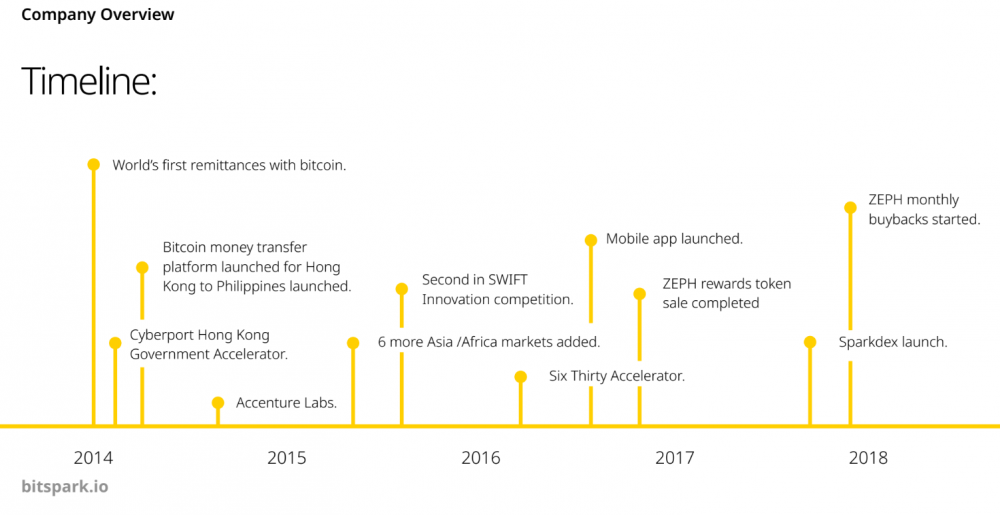
Their business began as a cash in cash out remittance service and still has roots in it:
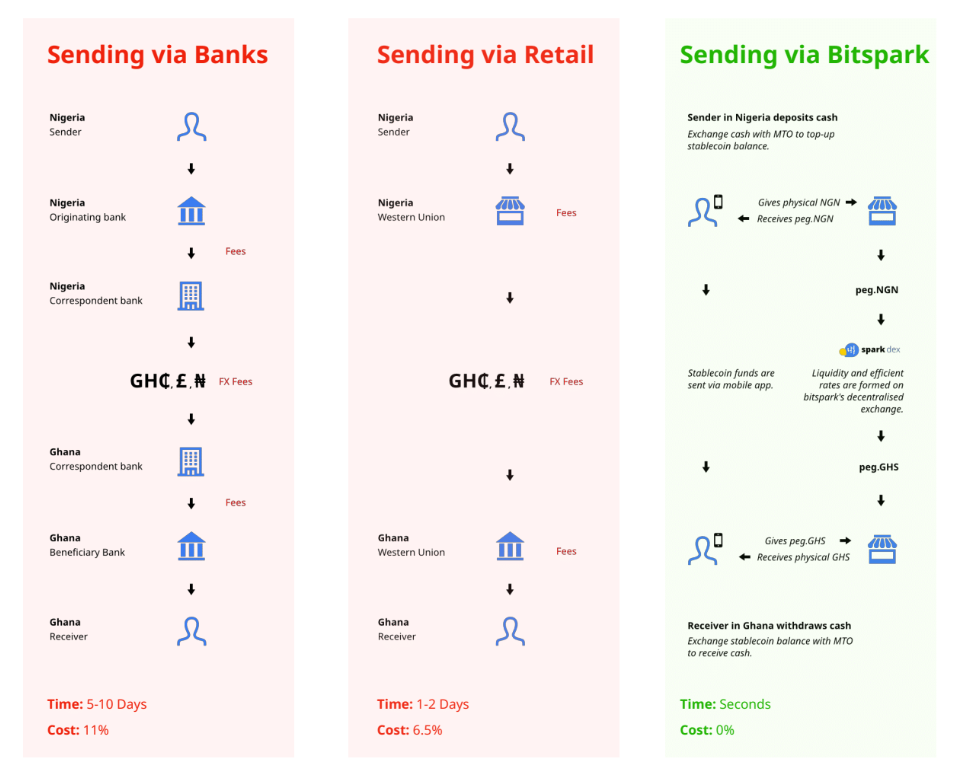
Now they have added DEX functionality which allows traders, investors and other users to add liquidity and capture market opportunities.
All while helping provide fuel to the underlying ecosystem Bitspark provides.
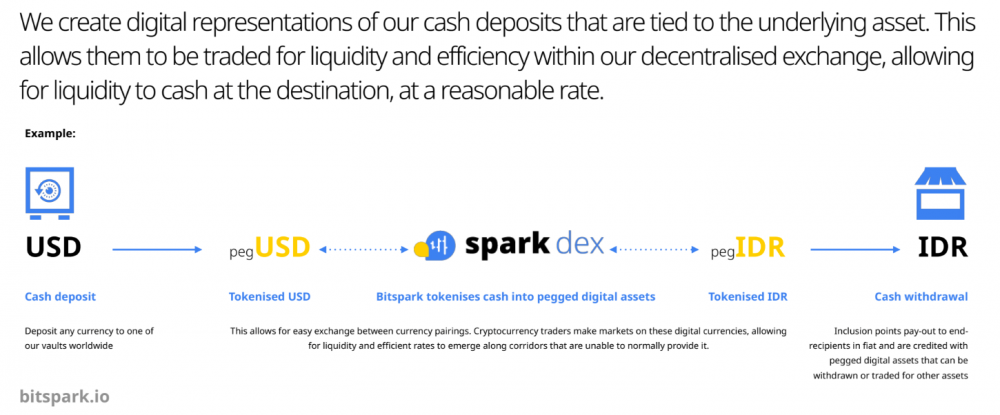
Learn more as we dive in with George Harrap on this episode of LAB Radio.
After listening to this episode you will learn:
- George's background and how he ended up in Hong Kong as an Aussie
- The regulatory landscape and differences between places like Singapore and Hong Kong's rules and approach to Crypto businesses
- Why and how they chose their current Headquarters location
- How George got status in Hong Kong as an Australian citizen
- The original intent of Bitspark and why they are Crypto Agnostic
- The nature of the cash remittance business and the problems and opportunity George saw to be solved
- How as little as 5-20% of people have bank accounts in many developing nations
- How the cash in, cash out shop process works and the value proposition they provide
- Why George didn't want to change human behavior but rather improve the process of what people were already doing
- How Bitspark benefits users, shop owners and traders behind the scenes
- An arbitrage opportunity for traders to help create liquidity for shop owners and cash remittance customers
- About Bitshares being the first stable coin that has been working since 2014
- How MakerDAO is a fork of Bitshares built on Ethereum
- Why the promise of not having to trust a companies reserves for a stable coin is a big deal (Hint: Crypto-based parallel FX market)
- How Bitshares experienced a black swan event and what Global Settlement is (and how to avoid that in the future)
- The process for Bitshares to incentivize traders to create Foreign Currency derivatives on their platform to help add liquidity to their
- How market making works through a can of coke analogy
On this inaugural OG Crypto Series episode, I, Chris Groshong sit down with Managing Partner at Stillmark Capital, Alyse Killeen to discuss what it takes to have longevity in the Crypto and Blockchain industry.
This is a new series we're launching called The "Crypto OG Series" where I tap into my rolodex of VIPs, movers and shakers from the Blockchain space that have been around the industry and share their knowledge, perspective and philosophies.
In this one, we talk about Venture Capital in Crypto and Alyse’s philosophical approach to investing through Stillmark Capital.
Are there any differences between LA and Silicon Valley approaches to investing?
And what does she look for in founders and does emotional intelligence play a factor?
Hear a story about the history of entrepreneurship in her family dating back several generations.
Alyse and I first met at an afterparty in June of 2014 as part of a conference (no longer in existence) called Coin Congress.
She said some very motivating words to me that helped me push through tough times.
I point this out because this industry is small compared to other Technology categories.
You never know how the words you speak will be received or the importance someone may give to them.
The people you affect may become allies, liaisons or partners in the future.
Be positive, genuine and spread goodwill. You will be rewarded many times over.
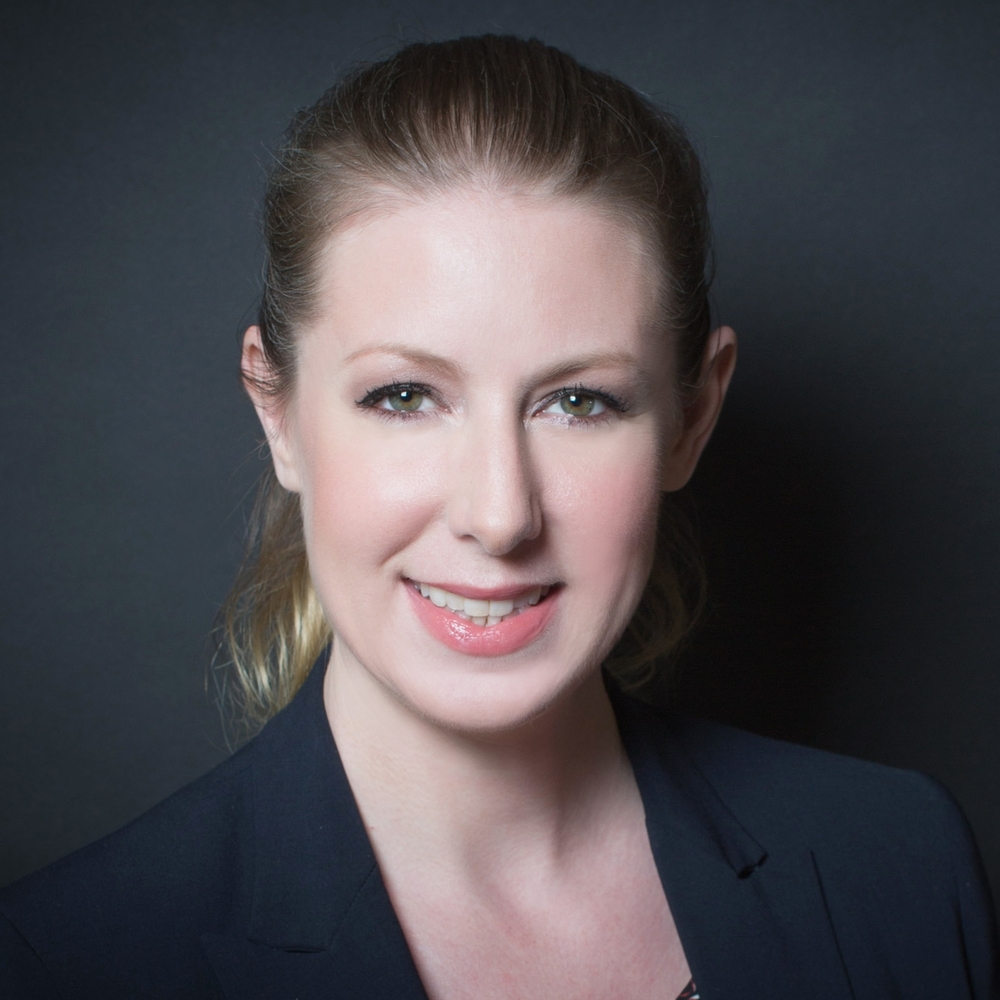
Founding Partner StillMark Co. Founder and Executive Director of City Fellows Consortium and Women in Venture. Mentor at Silicon Valley’s Plug and Play Tech Center and Alchemist Accelerator, and to NYFTL by the Partnership Fund for NYC and Springboard Enterprises. Fintech Fellow at Singapore University of Social Sciences in Singapore. Company Advisor contributing on issues of Strategy, Finance, Org and Ops, and more. First learned about company building alongside a successful entrepreneurial grandfather, catalyzing an affinity for and commitment to entrepreneurs. Rooting for Underdogs and Outsiders.
This episode of LAB Radio was a part of our coverage of CryptoBlockcon where Chris Groshong interviewed Erin Nakamoto.

As described on Erin's website, here's a brief bio:
"My story is a relatively short one. I was working in DTLV in the group sales department of the D Las Vegas in 2014 when they announced to the staff that they were now accepting bitcoin for payment. They had us open a Blockchain wallet, told us not to lose our passwords (private keys) and gave us all a small amount. That same day, I had a gentlemen call me and ask if he could host a bitcoin meetup at our hotel. We met, and the rest is history!
…WELL, fast forward a couple of years, I absolutely lost my private keys, but that same gentlemen that called…not only did we plan an awesome meetup together, but we fell madly in love and are still together today. So, all in all, I lost $75 bucks but I found the love of my life so it worked out pretty well for me. My life has changed drastically.
I have since taken over the Las Vegas Bitcoin Meetup and host them monthly. Kingsley and I live in Las Vegas with our amazing pets and we live off of our crypto! It has been an experience, I’ll tell ya. Lots of highs and lows, but I feel like my life got way more interesting since I’ve started living this way. I have way more adventures and it’s a great conversation starter. If you ever need advice on how to survive off of bitcoin, I’m your girl. I’ve got tips for days. I believe in the power of the blockchain and believe it will change all of our lives. I believe in trustless, peer to peer, borderless technology. I use my crypto like I use my cash and while not everyone does that, I feel that this is the only way that we’re going to spread mass adoption. But hey, that’s just my .2"
Erin is a consummate influencer, event organizer (Las Vegas Bitcoin Meetup), connector and networker. We were thrilled to connect with her and talk Crypto at CryptoBlockCon.
Check out the post here: https://coinstructive.com/ep51-erinnakamoto/
This episode of LAB Radio was a part of our coverage of CryptoBlockcon where Chris Groshong interviewed Adam Koltun, Lead Business Strategist of Quantum Resistant Ledger (QRL).

Chris Groshong (left), CEO of CoinStructive Inc, and Adam Koltun (right), Lead Business Strategist of Quantum Resistant Ledger (QRL)
As Adam so eloquently put it in their recap blog post, the conference itself was a cornucopia of very different industries squished together in an expansive venue:
"The event was held at the Mandalay Bay Resort and Casino. In addition to CBC, the MLB Winter Meetings, and a National Finals Rodeo competition was being held nearby, so many of the competitors were staying at Mandalay Bay. Certainly, literal cowboys, baseball executives and blockchain enthusiasts rubbing shoulders made for some interesting juxtapositions. As much as those of us within the industry can sometimes get weary of terms like “adoption” or “mainstream” or “awareness” — moments like these serve as an eloquent reminder, to me, that blockchain/cryptocurrency are still completely unknown to large swaths of American society, at least. It’s useful, I find, to sometimes recognize that for all the drama this space can sometimes produce, that in the long-run, these are minor speedbumps that will be hardly (if at all) remembered by the vast majority of crypto users within the next 10 years."
As stated on their website:
"The Quantum Resistant Ledger (QRL) is a first of its kind, future-proof post quantum value store and decentralized communication layer which tackles the threat Quantum Computing will pose to cryptocurrencies.
This is backed by provably secure, peer-reviewed XMSS (instead of 256-bit ECDSA) with a proof-of-work(POW) algorithm, Cryptonight v7, which will later be hard forked to Proof of Stake."
QRL aims to future proof the Blockchain from Quantum computing through peer-reviewed and proven precursors like Extended Merkle Signature Scheme (EMSS):
"QRL provides a blockchain that is resistant to both conventional and quantum computing attacks. The future of the internet will be built on decentralized protocols and abstraction layers, and we plan on being ready for that future, as well as any sudden quantum computing development (“Y2Q”) that may usher in that reality sooner than expected.
Our blockchain will utilize the previously vetted, provably secure Extended Merkle Signature Scheme (XMSS) to ensure that our network is resistant to quantum computing attacks. We aim to secure our network against not only the inevitability of quantum computing, and all that implies for the blockchain and cryptocurrency space, but also the potential for a black swan event to rapidly and irreversibly advance the technology with no immediate warning.
By utilizing an address format that allows us to change hash functions down the line if necessary, we have created a blockchain that is both secure today and adaptable tomorrow."
For show notes and more visit: LAB Radio
On this LAB Radio, episode Aaron Mangal and Chris Groshong talk security, the Internet and origin story of how MetaCert helps protect users from malicious links with CEO and founder, Paul Walsh.
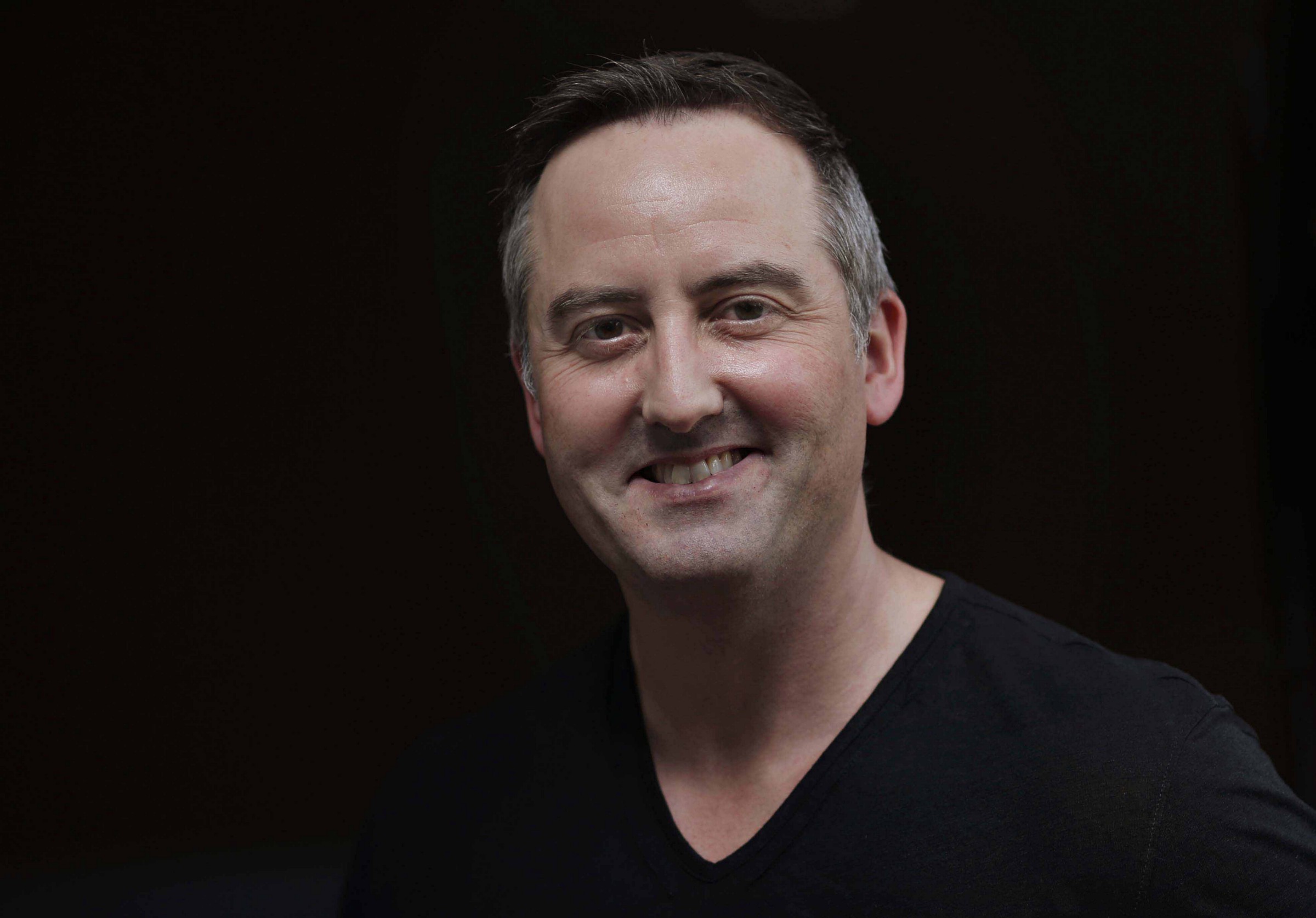
Paul Walsh, CEO and founder of MetaCert and co-founder of W3C Mobile Web Initiative
Paul is an early web pioneer in security and safety for users having helped create projects like the W3C Mobile Web Initiative who's mission includes "ensuring that the Web be available on as many kind of devices as possible".
He also helped create standards and classifications for Uniform Resource Locations (URLs) as a part of his work at the W3C organization.
"I'm CEO of MetaCert. In 2017 we completely eradicated phishing on Slack for the crypto world. In 2018 we pretty much brought a stop to phishing for the crypto world on Telegram. 2019 is going to be our most important year - our mission is to eradicate phishing for everyone who uses our new email security solution for native mobile email.
Previously...
I was part of the team that helped to launch technologies such as AIM, Internet Radio, Online Games and X2 56K Modem Protocol while working at AOL during the 90's.
I co-instigated the creation of the W3C Standard for URL Classification/Content Labeling and I'm one of the seven original Founders of the W3C Mobile Web Initiative. I also own a full patent for Malware and Phishing detection and prevention inside a mobile app WebView with more pending.
I own an Indian restaurant in Ireland - Michelin Star for 10+ years.
[I am a] Irish. Father. Wine Drinker. Advanced Open Water Diver, Snowboarder, Skydiver Wannabe and Seasoned Traveller."
-Paul Walsh
This new broad access of the web we are seeing today has brought new challenges such as malicious individuals who seek to steal peoples data and even worse Cryptocurrency and the value within.
The MetaCert team began by providing authenticity and monitoring of social media channels like Telegram and Slack which has a wave of malicious bot attacks on users, encouraging them to click on compromised links and put their sensitive data into fake websites which ultimately leads to theft.
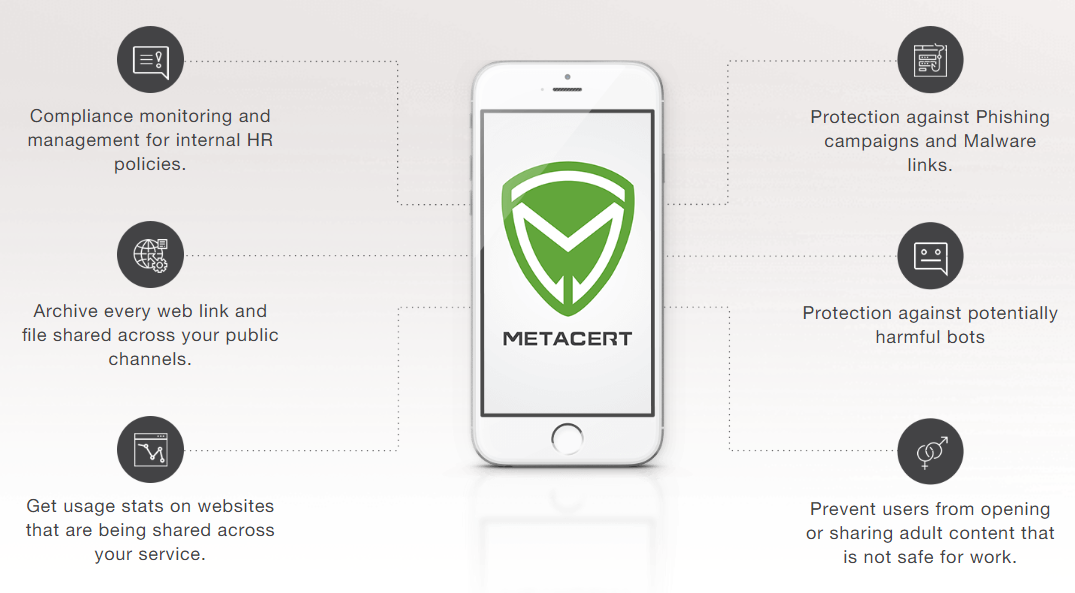
MetaCert aims to protect businesses from malicious threats and unsafe URLs inside Messaging Apps
MetaCert has a patented enterprise-grade security API which can lookup over 2,000 shortening services and check it against a massive database of 10 billion classified URLs across 65 categories in a fraction of a second.
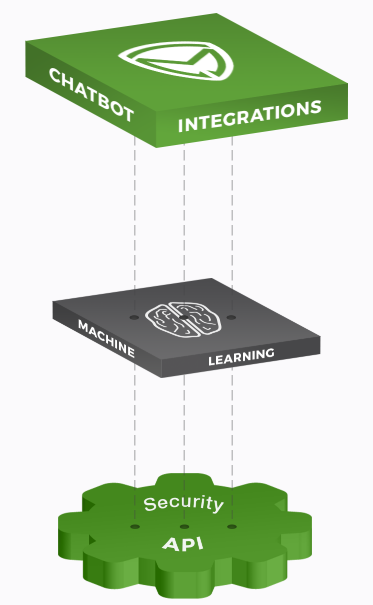
MetaCert boasts the biggest threat intelligence system on the planet. The second to them is OpenDNS (run by Cisco) which has classified 2 million domains across 60 categories.
One of the reasons for building its own threat intelligence system was to prevent false positives (which is a problem with current solutions on the market automatically blocking too many innocent sites).
MetaCert recently released a beta of their email security solution which helps verify the safety of links:
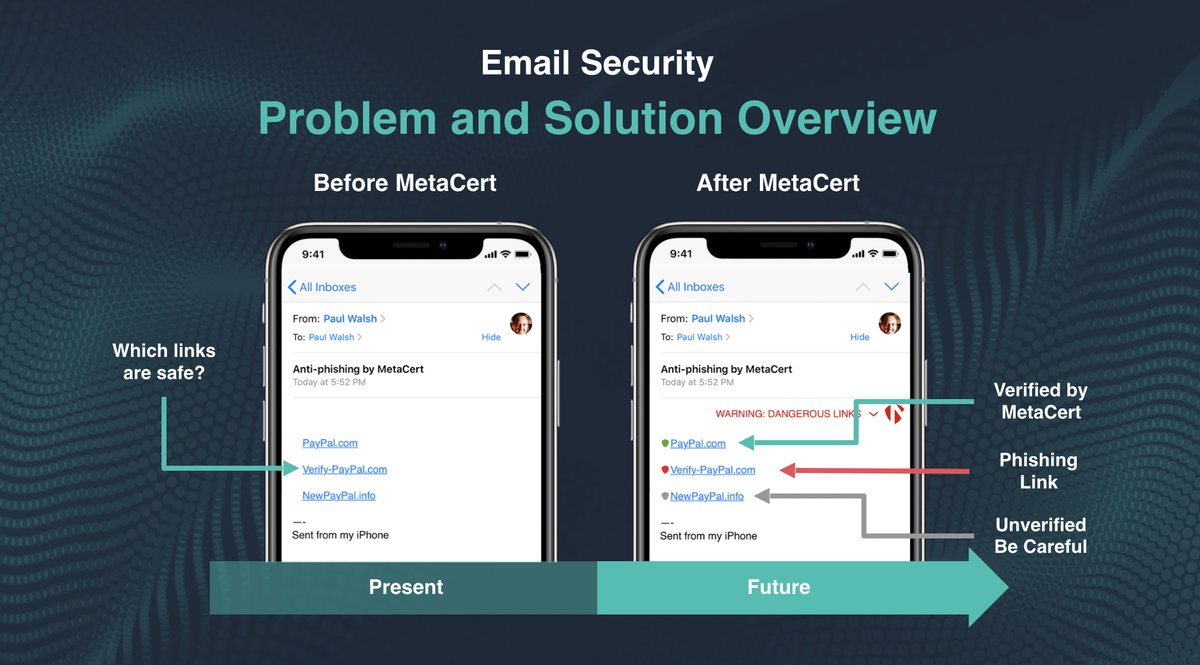
After listening to this episode you will learn:
- How Paul was an early semantic web pioneer in the 90s and created the W3C Mobile Web Initiative
- Why Paul felt websites and search engines should show more metadata and have an identity certificate
- What a Universal Resource Identifier (URI) is and why they are important
- How Webview works and was a vulnerability in our mobile use of the Web
- Why they got a patent in place for security around Webview to protect themselves from tech giants like Google
- Why the first iteration of MetaCert was for child safety and built a database for pornographic content
- How MetaCert saw the opportunity to organize and classify URIs and created the biggest Cyber Threat Intelligence Database to date
- How the MetaCert API works
- How MetaCert leverages a reward system for compensating people (Validators) for helping identify and log links
- Why the MetaCert "Green Shield" icon has become a pillar in their branding and marketing to the public
- Paul's vision for decentralizing governance around content, link filtering and working group/committee creation
- A fake news identifying browser add-on called TrustedNews which is 100% powered by MetaCert
- About how Paul is considering moving away from Ethereum (first time mentioned in public)
For show notes and more visit: LAB Radio Episode 49
On this LAB Radio, episode Aaron Mangal talks technology, Blockchain and BUIDLing with Barbara Bickham, founder of Trailyn Ventures and the International Blockchain Accelerator.
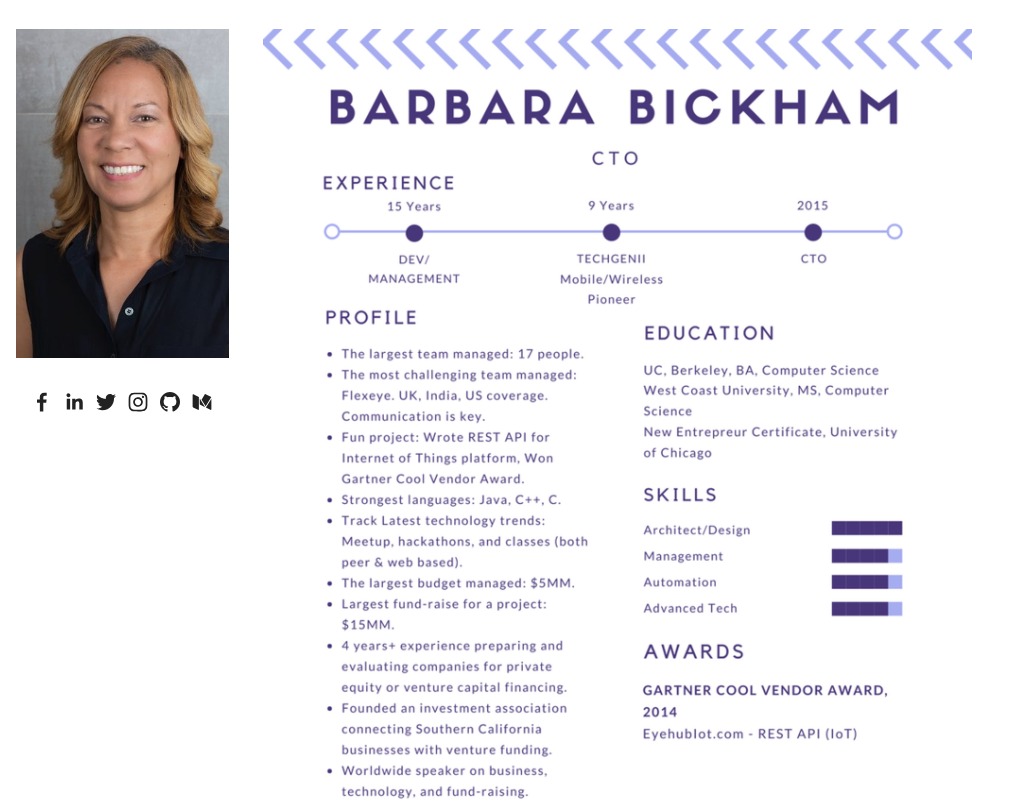
Barbara Bickham is a CTO, Investor and Entrepreneur and founder of the International Blockchain Accelerator
Barbara is a Berkley, University of Chicago Alumni, coder, CTO and Technology Advisor with extensive experience across industries like: FinTech, Fashion, Wearables, Wireless, Security, Media and Entertainment, Artificial Intelligence and Blockchain.
Her current areas of expertise are in Blockchain, Artificial Intelligence, Augmented Reality, and Internet of Things (IoT).
She even won an award from Gartner for her work writing a REST API for an IoT platform.
"I bridge the gap between professionals that speak in technology terms with professionals that speak primarily in financial terms. I represent a company to investors, key clients and strategic partners.
I also have over 4 years experience preparing and evaluating companies for private equity or venture capital financing. Founded an investment association connecting Southern California businesses with venture funding." -Barbara Bickham
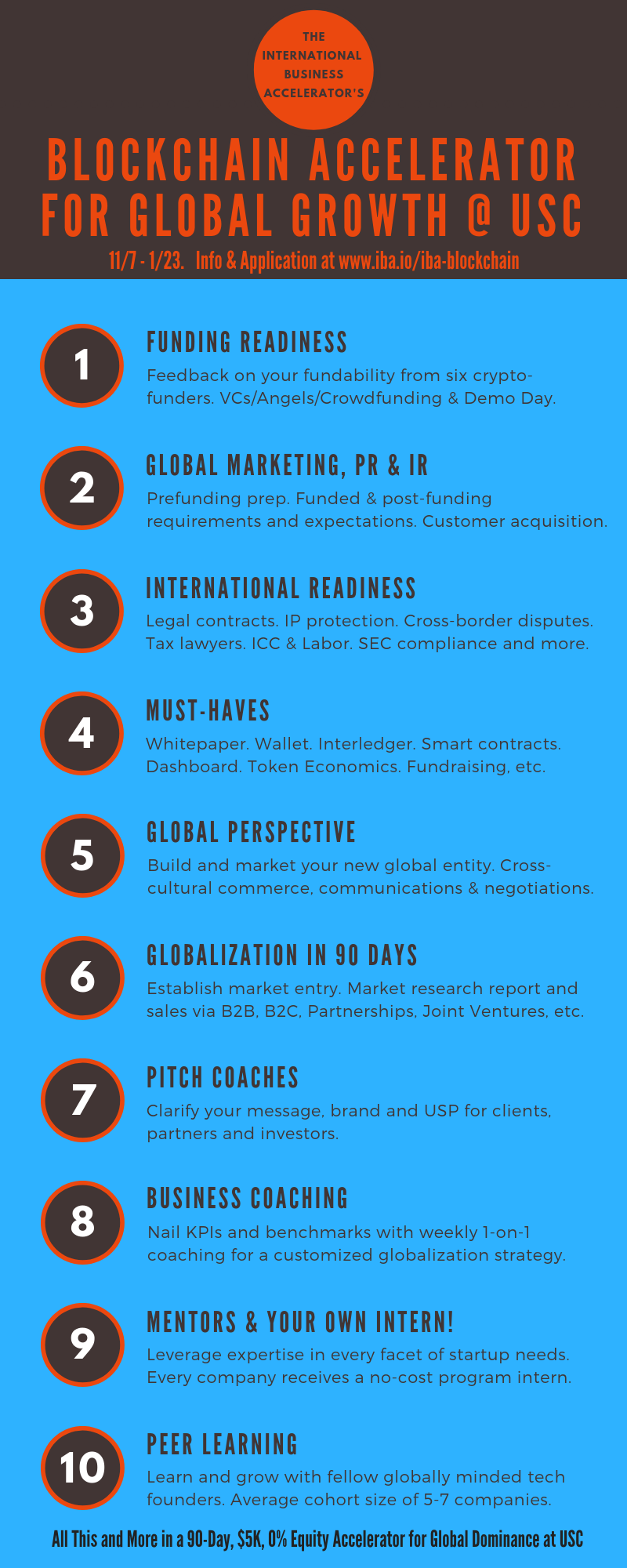
The International Business Accelerator is a combination of private sector and non-profit entities' efforts:
"The International Business Accelerator is a joint program of the Community Vitalization Council, an economic development non-profit, and K5 Ventures, an early-stage venture fund that partners with and invests in technology-driven businesses led by visionary founders.The IBA was started in 2014 with support from the US Small Business Administration...
...In 2018 the IBA announced its first sector-specific accelerator cohort on Blockchain for Global Growth taking place at the University of Southern California's Marshall School of Business. In 2019 the IBA will announce new cohorts for more advanced tech, Global Fintech, Female-founders & Women-led companies, a partnership with Southern California's leading hardware accelerator and a Menlo Park cohort partnering with international legal and accounting firms in Silicon Valley."
After listening to this episode you will learn:
- How Barbara began as a coder and eventually CTO, investor, entrepreneur and advisor
- The Catalyst for Barbara to cross the worlds of Investing and Technology
- The emergence of Digital Coast and eventually Blockchain Beach in Socal
- What a CTO is a what role they play in a company
- About the Blockchain Accelerator being hosted at USC's Blackstone Launchpad
- What types of people are joining the accelerator and what they learn
- The most exciting things to Barbara about the Blockchain world
For show notes and more visit: https://coinstructive.com/ep48-blockchainaccelerator/
On this LAB Radio, episode Chris Groshong talks shop with Jeff Zhou, founder of TrustNote, a mineable public DAG ledger with a two-tier consensus mechanism. (Cryptographic Algorithms: BLAKE2, BIP32-Ed25519)
The architecture is designed for high concurrent transactions and confirmation times.
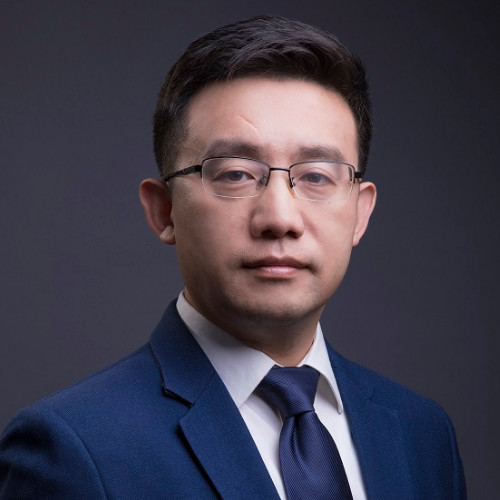
Jeff Zhou, Founder of TrustNote
Jeff's background began with chip making and eventually led him to realizing the lack of scalability with Bitcoin:
"A few years back Jeff Zhou started working on blockchain and at that time he developed BTC+LTC dual mining chips and hardware, the technology was sold to a world-wide market.Jeff then tried to develop an IoT software platform based on blockchain technology, and after several months of trial and development, he encountered serious issues with scalability and the transaction fees were very high. Issues like these prevent mass adoption of the blockchain technology and ultimately drove the foundation of the TrustNote open source project and its development of a fast, scalable, and light platform to provide high-performance for everyone on every device at a lower cost."
Now with TrustNote Jeff aims to create a new alternative architecture to the traditional Blockchain construct.
The TrustNote whitepaper elaborates on the details of the project and core architecture:
"Today’s blockchain technologies face many challenges such as network congestion, high transaction fees, and long delays in transaction confirmation. TrustNote seeks to address these problems by building the world-leading public Directed Acyclic Graph (DAG) ledger which is minable, capable of handling high concurrent transactions yet still maintain quick transaction confirmation."
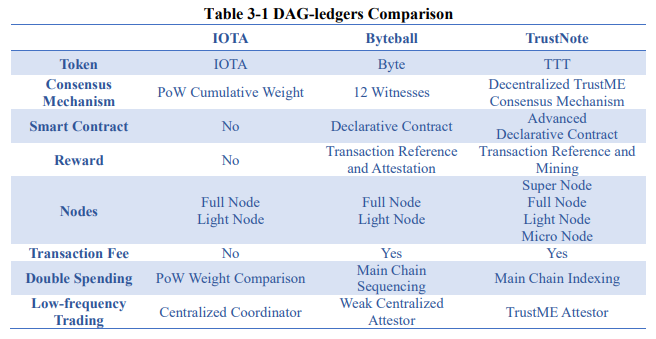
Above is a breakdown of how the TrustNote DAG compares with two other DAG focused projects, IOTA and Byteball.
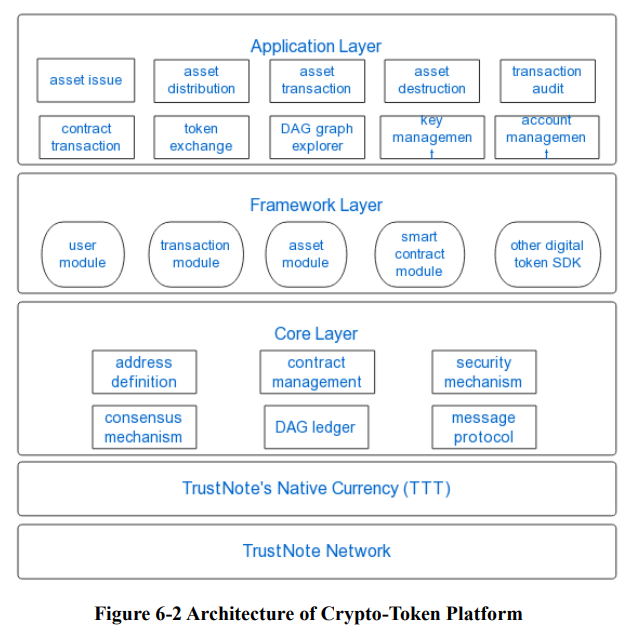
After listening to this episode you will learn:
- About how Jeff worked on secret projects for the Chinese Government before moving into the chip-making industry
- How they combined multiple algorithms into one chip (allowing multiple mining algorithms under one unit)
- Why Mining is big and concentrated in China
- Jeffs thoughts on China and how the worlds borders are opening up thanks to technology like Bitcoin
- What a DAG is and how they are using this technology as a Blockchain alternative
- Why Consensus is one of the biggest challenges to Blockchains
- Why they are aiming to solve this through a hybrid approach of architecture options
- What TrustNote is and how it works and when it's mainnet will be ready
- Why Jeff began with learning C languages (like C++) but also like other languages like Rust
For show notes and more please visit: LAB Radio
On this LAB Radio, episode Aaron Mangal chats with Kylan Hurt about the life as a developer at Edge wallet, a multi-currency wallet with baked in secure Single Sign-On (SSO) functionality.
We discuss how he became a developer, building a wallet, programming various code bases (like Javascript) and other topics from a dev's perspective.
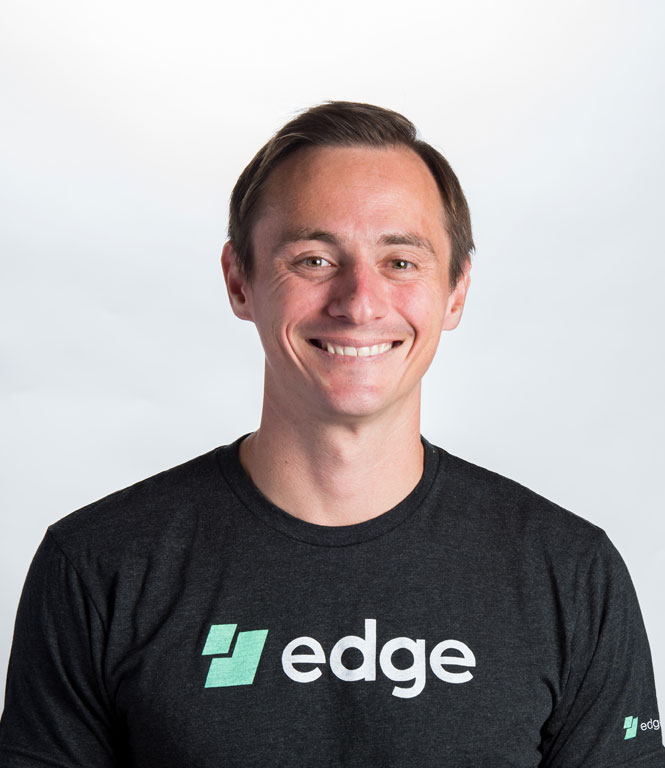
Kylan Hurt, Software Engineer at Edge
Kylan is a Software Engineer for Edge Wallet, a team that develops a multi-cryptocurrency wallet software and application. Kylan has worked with such organizations as Intuit, Z Global marketing, Knowledge City, Datagonia and Let's Talk Bitcoin.
He is also the organizer of the San Diego Blockchain Development Meetup and previously produced and hosted of The Captain Crypto Show, a discontinued cryptocurrency-related podcast.
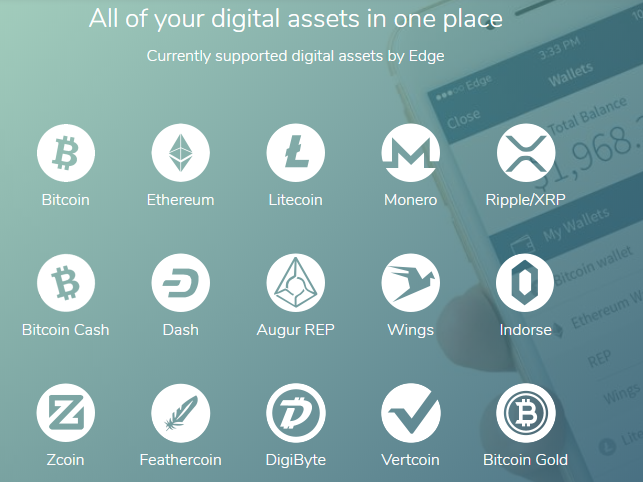
Edge, a multi-currency wallet with over 15 coins including BTC, ETH, XMR, XRP and more
Here is some lore about how Edge (formerly AirBitz) came to be from the company website:
Edge’s first product, a bitcoin wallet and business directory, was launched in the winter of 2014, under the company name of “AirBitz” and has been securing millions of dollars worth of bitcoin ever since. Like many others, Airbitz was inspired by the bitcoin revolution and set out from day one to build tools that kept bitcoin users safe and in control.
The Airbitz Bitcoin Wallet was the first application of a security model we coined as “Edge Security”. By the end of 2015, we had successfully packaged up the tools that make the Airbitz Wallet awesome into a software development kit (SDK) that developers could use for their own applications. Our “Edge Security” SDK has since been integrated into top-tier blockchain projects such as Augur, Wings, and OpenLedger.
Airbitz quickly advanced from a bitcoin wallet in 2014 to a paradigm shifting data security solution and multi-currency wallet in late 2017. Given our company’s evolution and coining of the term, “Edge Security”, we thought it would be best to highlight this focus as the core of our brand.
After listening to this episode you will learn:
- How Kylan self-started learning programming from a previously dissatisfying job
- The path he took to go from nothing to building an app (Edge wallet)
- Why Javascript is a more common language for front-end programming
- How you can do a lot of backend (server side) programming with Javascript
- Why other languages force you to configure your own server to write and deploy code
- What nodes are and why they are critical to decentralization
- How 0x works as a decentralized exchange protocol
- A day in the life of a developer at Edge
- How Edge eats their own dogfood through internal Cryptocurrency usage as a company
- Why development in the Blockchain space is bleeding edge and people should realize everything is a work in progress
For show notes and more visit: LAB Radio
On this LAB Radio, episode Chris Groshong chats with Will McDonough, founder of iCash which provides a Proof of Trust Protocol (PoT). This enables powerful use cases like smart contract validation, settlement and Blockchain insurance.
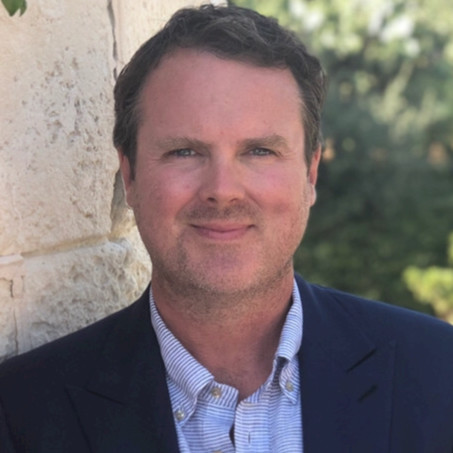
Will McDonough, founder of iCash
Will McDonough is an investor and entrepreneur whose storied career ranges from sports and entertainment management to the world of global finance. In 2014, McDonough led the Initial Public Offering for Atlas Mara (ATMA:LSE) with co-founder and former Barclays CEO Bob Diamond, for a market cap of $825 million after acquiring eight banks in Sub-Saharan Africa. Today, Atlas Mara has more than 3,500 employees and is operated by former executives of the World Bank, the International Finance Corporation (IFC), Barclays, Standard Chartered and Ecobank.
Prior to founding Atlas, McDonough and his team in the Investment Management Division of Goldman Sachs managed more than $17 billion in private capital of the firm’s current and retired partners. While at Goldman, he co-founded the Goldman Sachs Builders & Innovators Summit, an industry-leading conference bringing together the top 100 entrepreneurs in the world every year.
Prior to Goldman, McDonough partnered with New York-based Avenue Capital Group to co-found a $250 million distressed debt fund called Avenue Strategic Partners. Since 2001, he has run his own highly successful management company called MMG, which has represented the licensing and partnerships interests of many high-profile individuals, iconic brands, and venerable estates including The Estate of Nelson Mandela, New England Patriots Quarterback and Super Bowl MVP Tom Brady, and supermodel/activist Gisele Bundchen. MMG also co-founded a children’s entertainment company with Andy Heyward, Warren Buffett, Martha Stewart, Stan Lee and Arnold Schwarzenegger to build educational content for children.
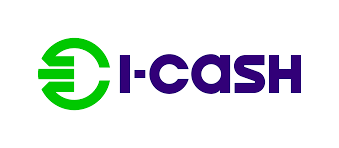

iCash, a Proof of Trust (PoT) protocol assuring accurate data from Blockchain transactions
iCash’s is a Blockchain-agnostic Proof of Trust (PoT) protocol which provides distributed trust for data input. This means assuring data is accurate using this construct for services like validating smart contract settlements and Blockchain Insurance.
Just as courts and lawyers provide validate appeals processes for paper contracts, iCash’s PoT Delegates provide the same process for digital Smart Contracts.
While proof of stake and proof of work are certainly breakthrough tech, there is currently no system in place to assure users that the data inputs are accurate.

After listening to this episode you will learn:
- About Will's origin story and how he got started as a childhood entrepreneur
- How Will got into Boston College after initially being rejected
- Why he built a company with Tom Brady and represented such figures as Nelson Mandela financially
- What a special-purpose acquisition company (SPAC) is and the benefit of operating as one
- Creating a company ("fund of funds") that provided exclusive access to hedge fund managers that money couldn't buy
- How he developed relationships with JP Morgan, Morgan Stanley and Goldman Sachs
- Why settlement in Blockchain transactions are not always accurate and why that's a pain point for institutional traders
- What Proof of Trust (PoT) is and how it works?
- About iCash positioning as an independent third party insurance provider of Crypto (like buying it for your car)
- How iCash uses Delegates (third-party Oracles) which can be configured for public or private Blockchains
For show notes and more visit: LAB Radio
On this LAB Radio, episode Aaron Mangal discusses Blockchain Regulation and the legal side of things with Morvareed Salehpour.

Morvareed Salehpour, Attorney and Speaker
Morvareed Z. Salehpour specializes in handling a diverse range of complex legal matters both in and outside the courtroom. She is experienced in negotiating a variety of contracts and legal agreements and litigating cases from inception to trial and appeal. She has represented companies and individuals in a variety of industries, including blockchain, technology, entertainment, media, banking, manufacturing, real estate, fashion, retail, food and beverage, and healthcare, among others.
She has represented clients across the nation ranging from entrepreneurs and small businesses to Fortune 500 companies. Ms. Salehpour enthusiastically applies unique solutions to client needs, working hard to devote herself to efficient resolutions.
Ms. Salehpour earned a degree in Political Science, summa cum laude, from UCLA in 2007 and received her JD from the UCLA School of Law in 2010, where she also served as a Managing Editor for the UCLA Law Review. Ms. Salehpour previously practiced at BakerHostetler, a national firm where her work included being a member of the legal team seeking to recover the principal lost in the Madoff Ponzi scheme, and then at Strange & Butler, a complex litigation boutique.
She is admitted to the State Bar of California, is a member of the bars of the United States District Court for the Central, Northern, Southern, and Eastern Districts of California, and a member of the bar of the United States Court of Appeals for the Ninth Circuit.
Ms Salehpour is also active in the tech community and enjoys analyzing and discussing developing legal issues in that field, particularly with respect to the blockchain, artificial intelligence, virtual reality/augmented reality, and esports.
After listening to this episode you will learn:
- About Morvareed's background, where she's from and how she got started in the Law (Hint: Law and Order)
- How Morvareed decided to focus her legal services on Blockchain and Cryptocurrency technology
- The way she approached applying legal capabilities and the Law to Blockchain
- About the US-based case law system and how it affects the development of Regulation
- Why we have been through these cycles before with the Law but with other tech booms
- Key concepts including Jurisdiction, Liability, Enforcement, Crypto Asset Management, and Copyright Protection
- The dark side of Cryptocurrency and the Law
- Threats to Blockchain immutability
- About the uniform regulation of virtual-currency businesses act
For show notes and more please visit: LAB Radio Episode 44
On this LAB Radio, episode Aaron Mangal discusses creating rare digital art on the Blockchain as well as the myriad of platforms out there for artists. Our guest this week is Joe Chiappetta, cartoonist, comic book author and artist.
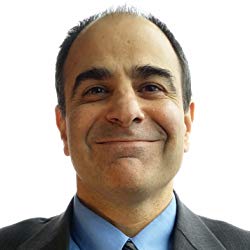
Joe Chiappetta, Author, Cartoonist, Blockchain Art Creator
Joe Chiappetta has been involved in cartooning and publishing since the mid-1980s, creating comics and art that reflect something positive about life. As an author, Chiappetta has won many awards, including an Illinois Arts Council Award for his work on the book "Back Pain Avenger." This volume, its research, and the speaking tour surrounding it focused on issues of disability in the history of comic books, as well as presenting a non-medicated memoir of rehabilitation. For his family documentary work on the graphic novel "Silly Daddy," Joe was also the recipient of the Xeric Award as well as numerous other award nominations over the years.

Rare Silly Chain from Joe's Blockchain Art Card Collection Called CrystalsCraft
While widely known for his award-winning work on Silly Daddy Comics, Joe has also been a prolific cartoonist creating comics about cryptocurrency and blockchain since 2015. He exhibited twelve blockchain comics at the 2018 Ethereal Summit in New York City and was the only cartoonist selected for this event to create live interpretive comics covering the show.
As the author of numerous articles about rare digital art, and an early adopter in this field as well as on crypto-social networks, Joe has educated and encouraged thousands of professionals, including artists and collectors, to pay close attention to the rising opportunities that cryptocurrency has opened up for the art industry.
After listening to this episode you will learn:
- Joe's Background and how he got into making art
- How the old system of collectables works (Creating, selling and distributing the works)
- What makes something rare, valuable and collectable
- How Joe sees the opportunity to transition into digital collectables
- The story behind Joe's rare digital artwork
- How does Cryptocurrency open new opportunities for Cartoonists and Collectors
- About Spells of Genesis and their "Blockchanization" in gaming
- Applications in the Cryptocurrency art realm Joe is excited about
- Book of Orbs, a platform for buying/selling and storing digital art
- Platforms Joe likes including Steemit and Ono
For show notes and more visit: LAB Radio
On this LAB Radio, episode Aaron Mangal discusses Spark, a web and mobile payments platform and decentralized exchange (DEX) powered by Graphene and built on BitShares.
Maxine Ryan, Spark's Chief Operations Officer, discusses the platform and a variety of concepts including the components of a DEX and the process of moving from Spark from Bitcoin to BitShares.
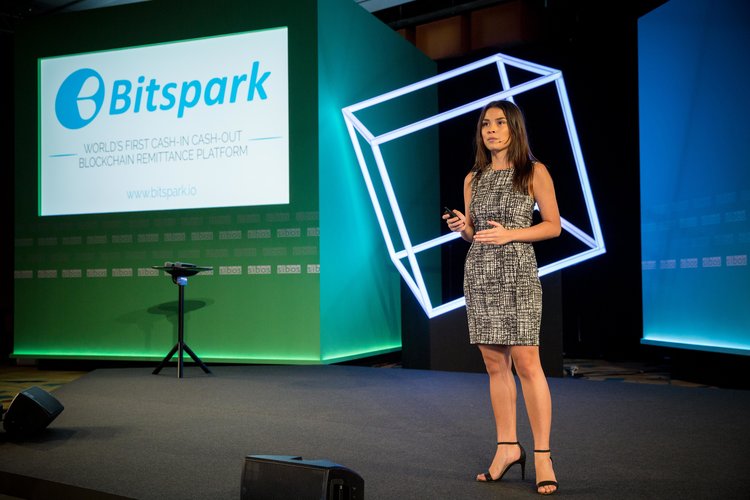
Maxine Ryan, COO and co-founder of Spark
Maxine Ryan is a Hong Kong-based entrepreneur who is passionate about the freedom of financial services for people. In 2014, she co-founded Bitspark, the world's first cash in, cash out blockchain money transfer platform for Money Transfer Operators which helps business owners send money better via cryptocurrency solutions worldwide.
The company in 2017 launched its ICO, $ZEPH, a rewards token for Bitspark's 180+ pegged cryptocurrency network whereby users of networks are incentivised via rewards and the company contributes buybacks to the market via its profits. Maxine frequently speaks at tech and finance events, can be seen on BloombergLive and was selected for Forbes 30 Under 30, 2018. Twitter : @MaxieRyan @BitsparksLtd #Bitshares #Decentralisation #RealSolutions
As stated on their website:
Bitspark, a Hong Kong based fintech company provides Spark, a secure web and mobile platform for money transfer operators [MTO] to send and receive payments quicker and cheaper utilising blockchain technology in addition to a suite of compliance and analytics tools tailored for the MTO industry.
In November 2014 Bitspark conducted the world’s first cash-in cash-out remittance transaction using Bitcoin and has since refined and targeted their services towards money transfer operators.
Bitspark has in recent years expanded to over seven countries in the Asia Pacific and African regions including Hong Kong, Malaysia, Ghana, Nigeria, Philippines, Indonesia, Vietnam and Pakistan and has formed a number of important partnerships and gained recognition at home and internationally. Bitspark has a history of excellent support from many notable organisations.
Bitspark is an alumni of the Cyberport Incubation Program in 2014 backed by the Hong Kong government, in 2015 was selected for the Accenture Fintech Innovation Lab APAC, in 2016 selected for the SixThirty Fintech accelerator USA and in 2017 was selected by the United Nations Development Program for financial inclusion projects in Tajikistan. In the financial space, Bitspark has been recognised by Goldman Sachs, Citibank, KPMG and Nikkei and has received coverage by noted publications like Forbes, SCMP, RT News, New York Times, The Australian, Coindesk and many more.
We discuss network effects and building technology that can be used across the Blockchain universe.
Thanks for checking out LAB Radio!
After listening to this episode you will learn:
- How Maxine got started in her career and eventually into Blockchains
- The state of the Blockchain market an industry in 2014
- Why Spark (BitSpark at the time) shifted from Bitcoin to the BitShares Blockchain
- About how Spark is bankless, using full Crypto for all of their business
- The SparkDEX, what it is and how it works on BitShares
- Core models of Spark's business
- How Spark wants to create an open ecosystem for the money transfer space
- The 3 components of a DEX: fund management, order books and crypto transaction
- How the Sendy App works to facilitate cash-in and cash-out transaction in person leveraging Spark
For show notes and more please visit: LAB Radio
On this LAB Radio, episode Aaron Mangal discuss Blockdaemon, a three-click Blockchain node deployment and cloud platform with Konstantin Richter, the CEO and founder. Konstantin is a technology Entrepreneur in the Telecom, SaaS, and the B2B space.
Prior to becoming an entrepreneur, he was an executive at Deutsche Telekom and Nokia in software/services strategy and business development. He is also fluent in 4 languages.
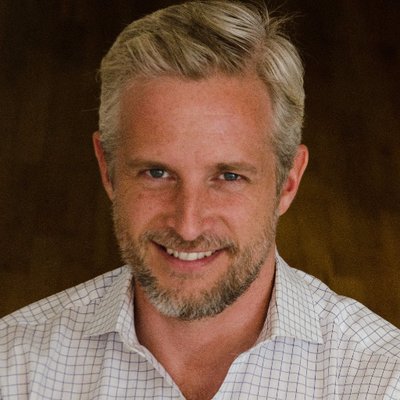
Konstantin Richter, CEO and founder of Blockdaemon
Blockdaemon is a node deployment tool that allows you to launch your node on a public blockchain network or join a private network in three clicks.
To maintain decentralization, Blockdaemon partners with multiple cloud providers, including AWS, Digital Ocean, and Google Cloud Services.
With Blockdaemon you can customize an existing protocol, supply your genesis block, choose the regions you want and how many nodes you need.
Current Blockchains supported include Bitcoin, Ethereum, Stellar and AION
We discuss network effects and building technology that can be used across multiple Blockchain universes.
Thanks for listening to LAB Radio!
After listening to this episode you will learn:
- How Konstantin got his start through telecom and consulting
- The power of network effects Konstantin observed and how he sought to leverage that construct in his companies
- About the crossover between network effects and the Blockchain
- Previous experiences including helping structure the business and strategy for Gem
- How his previous consulting experiences led him to think strategically about systems
- The benefits of Nodes-as-a-service which allows users to pool resources and gain economies of scale
- Why the goal has been to provide self-provisioning 3-click deployment of nodes for Cryptos like Bitcoin and Stellar
- Their developer first focus in term of the tools and services they provide
For show notes and more please visit: LAB Radio
In this episode of LAB Radio, Chris Groshong and Aaron Mangal discuss the NEO Global Capital fund, investing in Asia, emerging markets and the Blockchain.
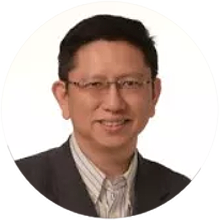
Roger Lim, Partner at NEO Global Capital
Roger is an experienced angel and blockchain investor, entrepreneur and technologist. He previously founded Webvisions, a managed cloud hosting company which he sold to a private equity firm.
He is an advisor for Bluzelle, Qlink, CoinFi, Selfkey, TheKey, Tomocoin, 0Chain, nOS, Open Platform. Roger is now a founding partner of NEO Global Capital.
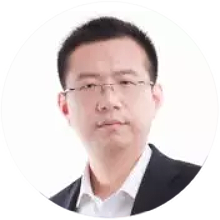
Tony Gu, Partner at NEO Global Capital
Tony is an experienced Mergers and Acquisition (M&A) professional and blockchain investor. Tony is a founding partner at NEO Global Capital (NGC) and is a partner of Rhodium Capital and Longstand Capital.
He has done deals in Financial Services, Consumer, Health Care and TMT sectors, with total transaction value exceeding $1 Billion.
We discuss investing in Asia, emerging markets, preserving wealth and the NEO Global Capital fund.
After listening to this episode you will learn:
- How Roger and Tony met each other and began investing together
- The structure and focus of the two NEO Global Capital funds they manage
- Key initiatives and project categories that investment occurs in
- Emerging markets that they see activity and investment in
- The things that are most exciting to Roger and Tony
- Why Networking, building trust and opening doors for others is so important
- How NGC focuses on not just investing in firms but adding value
- The challenges around finding and retaining talent
- Strategies and tactics to consider when looking at markets
For show notes and more please visit: LAB Radio
In this episode of LAB Radio, Aaron Mangal discusses the Bitshares ecosystem, the Graphene engine that underlies it and algorithms like Delegated Proof of Stake (DPOS) with Kevin Messerly. Graphene was originally designed by Daniel Larimer who also founded Steemit and EOS.

Kevin Messerly, Proxy and DEXBot Team Manager
"I have six years experience as a cryptocurrency investor and advocate. Additionally, I have four years experience as a sales executive/account manager with a track record of high performance and strong work ethics. On top of that I have over fourteen years experience as an intelligence analyst for the United States Army and Department of Defense. I have successfully operated in high stress environments, requiring 13 hour shifts, six or seven days a week, throughout four deployments in Southwest Asia, South-Central Asia, and Africa for a total of 49 months."
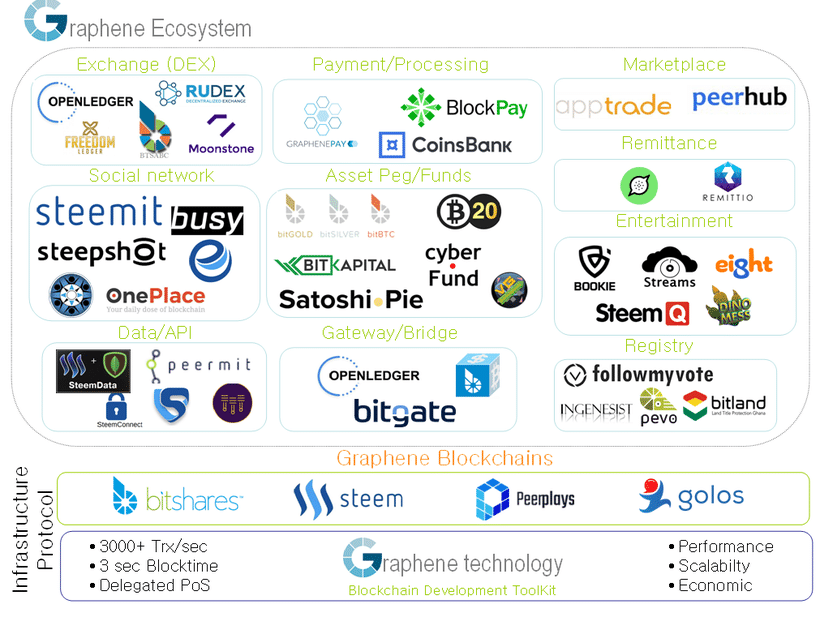
Graphene is the underlying technology that underlies BitShares and several other Cryptocurrency projects like Steemit and EOS. Graphene is an open source C++ blockchain implementation, which acts as a consensus mechanism.
BitShares also has the ability to issued market pegged assets which are tied with real-time real world prices.
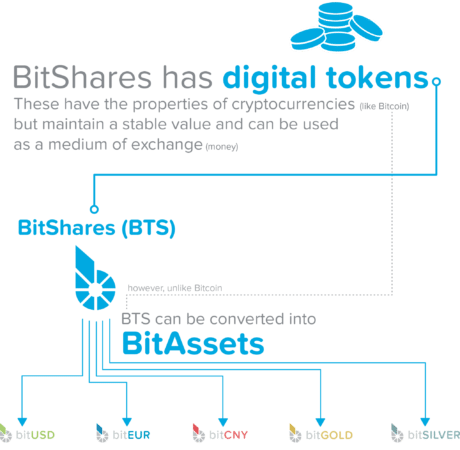
The BitShares market pegged BitAssets system
Ultimately, BitShares operates more as an equity rather than a purist “currency” since BTS tokens are used as collateral for a variety of decentralized financial services like decentralized exchanges, banking, derivative creation (of market pegged “bitAssets”) and currency rails.
Thanks for checking out LAB Radio.
After listening to this episode you will learn:
- Kevin's origin story and how he first discovered Cryptocurrency in 2011
- Why BitShares, in particular, caught Kevin's eye
- How BitShares leverages a suite of services including a DEX, bank and even user issued assets (UIA)
- About BitShares and how it had the first stable coin and market pegged assets (MPA) system
- The construct of Witnesses who process transactions and maintain price feeds
- The concept of decentralized banking and how you can borrow against your BitShares as collateral
- How Black swan events and collateral are handled by the system
- The risk and challenges of growing an ecosystem like BitShares
- The benefits of Decentralized Exchanges (DEXs)
For show notes and more please visit: LAB Radio
In this episode of LAB Radio, Aaron Mangal discusses Interactive and Tokenized Television with Gavin Douglas, CEO and co-founder of iPowow.
"Our early vision was conceived on a surf beach in Australia, ‘… to give millions of television viewers the power to interact with their favorite TV show and to affect the story, second by second’.
Since then we’ve been expanding around the world, transforming tens of thousands of hours of live TV, taped TV and live stream shows into exciting participation experiences. We’re a team of TV thinkers, creators and doers with a passion for Participation TV and we firmly believe that telling great stories leads to great ratings.
By moving iPowow onto the blockchain and making use of the best technology available, we can tokenize and monetize viewer engagement to provide better rewards for viewers and valuable data insights to networks, shows, and brands. So basically, instead of earning points, which have limited value, viewers earn HIT tokens just for watching content and more HITs for actively participating in contests, polls, and campaigns. After accumulating a certain amount of HITs, a viewer can visit our digital shopping plaza and exchange them for either digital or real-world products offered by our TV Network and Brand partners."

Gavin Douglas, CEO and Co-Founder of iPowow
Gavin is a multi-award winning media producer and TV format developer with over 20 years of experience. As the CEO of iPowow, Gavin has driven the business deals and the production of over 100 broadcast television + streaming video projects that link linear storytelling with real-time interactive technology, offering a unique perspective important to bridging blockchain technology and the media ecosystem.
Gavin has overseen iPowow’s growth across both linear television and streaming video by negotiating and signing production deals with clients including ESPN, NBC, ABC, Fox Sports, CNBC, CNN, Red Bull, Discovery and Disney. Prior to iPowow, Gavin had written, produced, directed or edited more than 30 television series around the world, including “BBC Top Gear,” “MasterChef,” “So You Think You Can Dance,” “Big Brother” and “MythBusters.”
iPowow which led to the creation of the HIT protocol allows viewership to be tokenized, meaning viewers can be paid to watch content. This also brings with it a whole new level of data as this viewership can be correlated with buying habits.
After listening to this episode you will learn:
- About Gavin's background in Television and analog approaches to audience interaction
- The genesis of iPowow and pitching their interactive tech to NBC, ABC, CNN, ESPN and FOX Sports
- How they have always focused on the viewing experience and aim to keep viewers excited about the show
- The key technological catalysts for the evolution of TV from "stuck the wall" 20 years ago to today's on-demand world
- Why the fact that everyone can consume content on any device anytime is a huge business opportunity for everyone
- How viewers are incentivized to watch shows through HIT tokens
- The vast treasure trove of data available behind these tokens and the associated viewing and purchasing habits
- Why we should always be on the lookout for the next technology and how to put those pieces together
For show notes and more visit: LAB Radio
Thanks for listening to LAB Radio.

In this episode of LAB Radio, Aaron Mangal discusses Spl.yt, a decentralized marketplace protocol, with CEO and founder Cyrus Taghehchian.
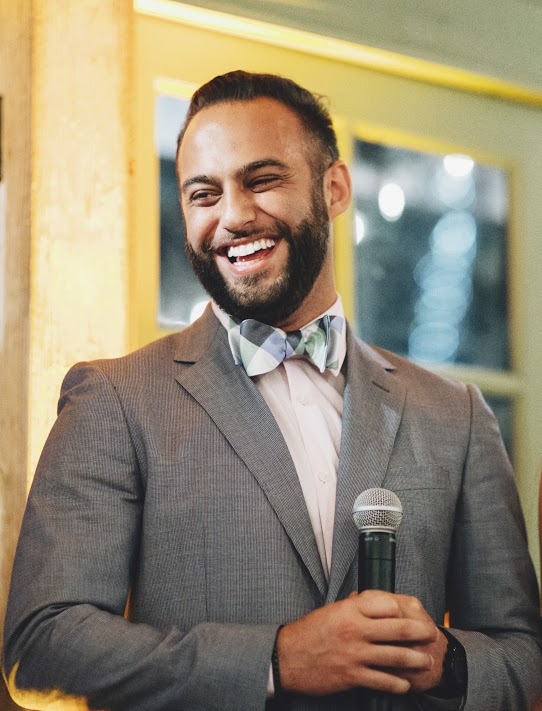
Cyrus Taghehchian, CEO and Founder at Spl.yt
Cyrus Taghehchian is the co-founder and CEO of Spl.yt, a decentralized marketplace protocol. Cyrus, a Deloitte Consulting alum, is a world-class consultant, co-active coach and Lean-Agile thought leader who has helped C-level and executives improve their organizations’ product management processes, development practices, and team culture at companies such as Intel, Bank of America, Paypal, and more.
A serial entrepreneur at heart, Cyrus specializes in technology strategy and implementations in the e-commerce and digital marketing space, including leading his previous companies through product and market fit phases.
Cyrus entered the blockchain space in 2015, having taken several notable active involvements, collaboration and advisory roles within the blockchain community where he applies his unique business development perspective, to promote blockchain and distributed ledger technology.
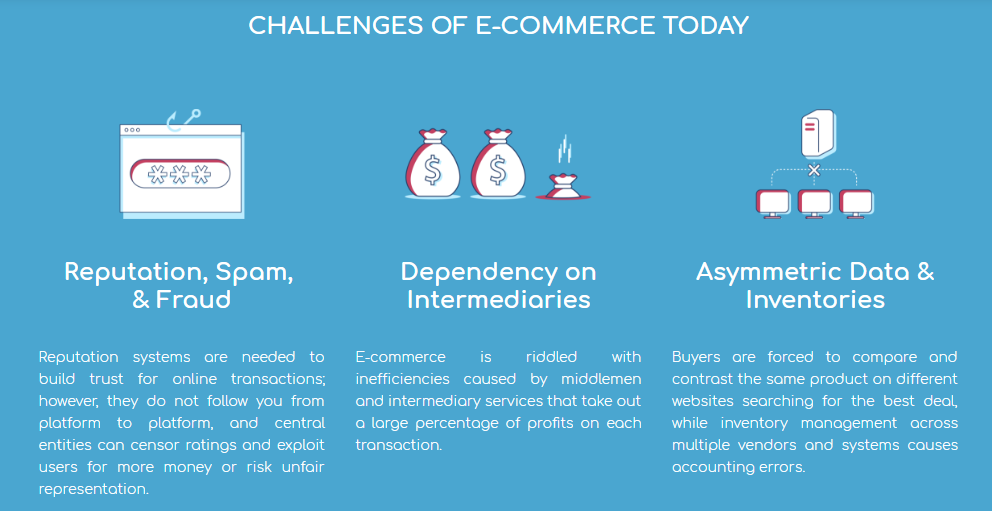
Spl.yt, a Decentralized E-commerce Protocol for a Global Inventory and Affiliate Network
According to the Spl.yt litepaper: “Spl.yt provides the market reach of Alibaba and CJ Affiliate, with the assurance of
Amazon, at the no-cost prices of Craigslist”
This is based on their global inventory and logistics system which allows retailers to connect with several marketplaces, not just one, which greatly reduces the labor and management behind multiple postings.
It goes on to further explain how retailers can connect with their platform: Spl.yt’s core function begins when an online retailer connects our easy-to-use SDK to load its inventory onto the blockchain. Once on the blockchain, Spl.yt’s smart contract grants access to all other participating marketplaces...Spl.yt uses token economics to promote fair and reliable participant
behaviors. Spl.yt’s global reputation system provides peace of mind that reviews and ratings (necessary for buyers to trust retailers) are performed fairly without censorship or manipulation, and reflect behavior across the internet (rather than one website).
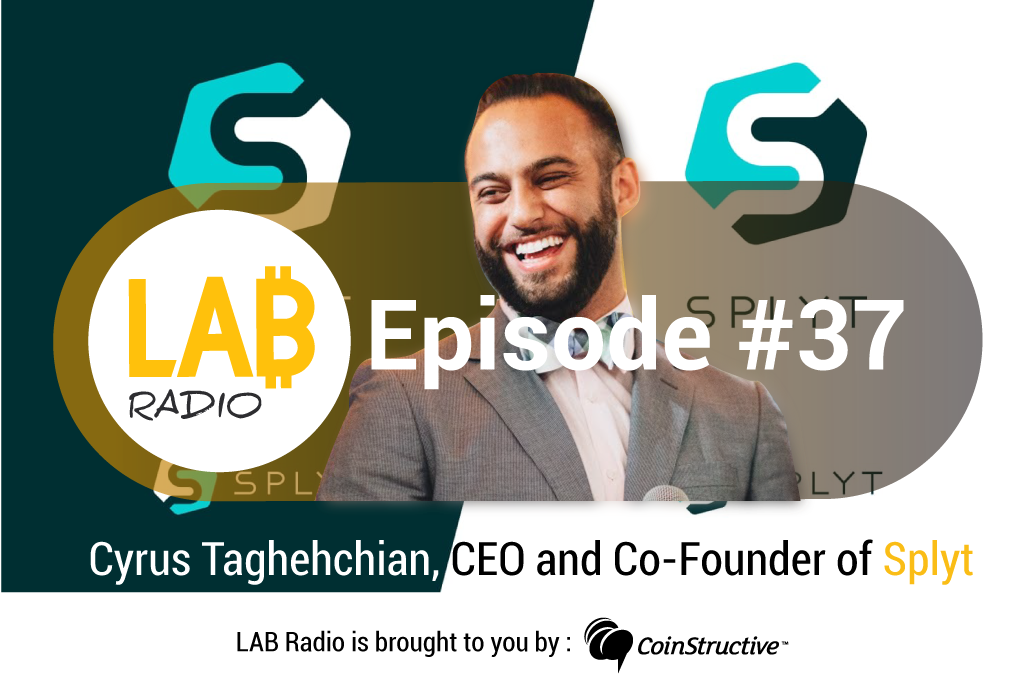
How Splyt Connects Buyers and Sellers
Splyt also have a dispute resolution to take care of any kind of problem that arises from transactions through intermediaries called Validators. These are real people that help figure out any issues whether on the buyer or seller side.
Finally, through an affiliate system sellers can leverage an automated way to manage and pay out commissions to affiliate for helping to sell products.
After listening to this episode you will learn:
- About the origin story of how Cyrus went from Consulting into the Blockchain world
- How consultants think, work and create value for clients
- Why great consultants replace themselves in the long-term
- Why people are a super important often overlooked part of building a successful company
- What Splyt is and how it works as a protocol
- The way that Splyt increases the reach of a posting across several major marketplaces
- A unique affiliate system that incentivizes anyone helping sell any product in the marketplace
- How Sellers can download the Splyt SDK and access a global database of inventory
- About Decentralized Autonomous Initial Coin Offerings (DAICOs) and one called HAIKU that Splyt is building
- The Affiliate system behind Splyt and how it evolves the current Affiliate model
- How Splyt handles dispute resolutions
For show notes and more please visit: LAB Radio Episode 37

